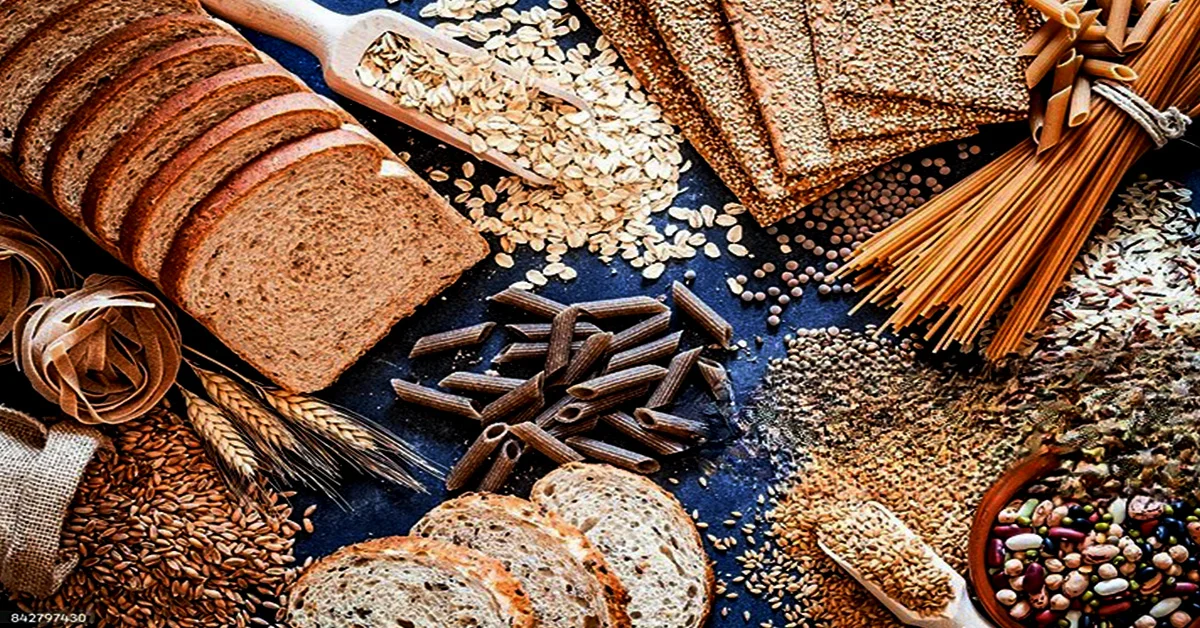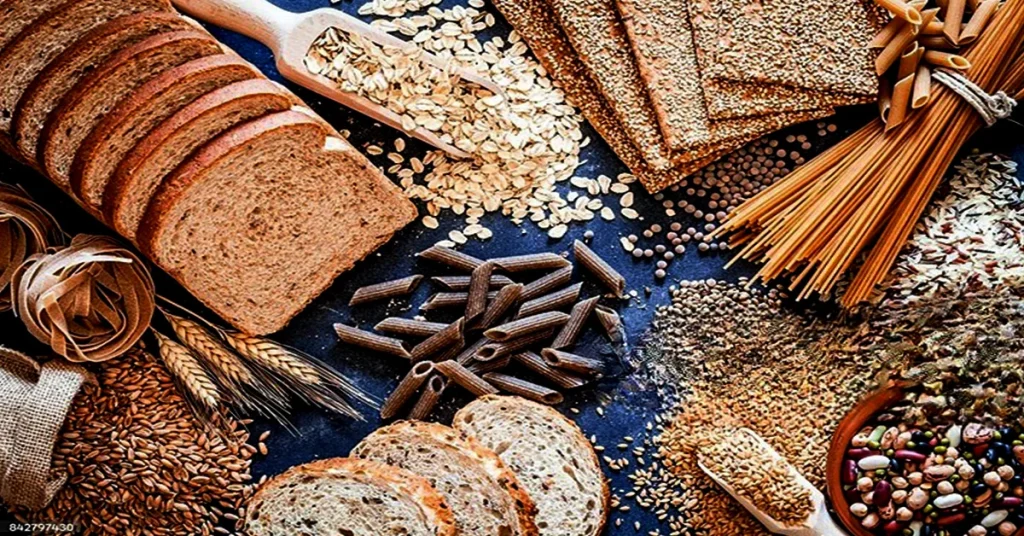When it comes to healthy eating, timing can be everything. Oats, a versatile and nutrient-packed food, are often praised for their benefits. But have you ever considered how the timing of eating oats might affect their impact on your body? Whether you enjoy them first thing in the morning or as a soothing evening snack, understanding the best time to eat oats for health can unlock their full potential. Let’s dive into this fascinating topic to find out what works best for you.
- Why the Timing of Eating Oats Matters
- A Quick Look at the Health Benefits of Oats
- Benefits of Eating Oats
- The Role of Oats in Maintaining Heart Health
- Why Morning Might Be the Best Time to Eat Oat
- Why Night Might Be the Best Time to Eat Oat
- Comparing Morning and Night Oats
- Eating Oats for Specific Health Goals
- Creative Ways to Enjoy Oats
- Myths and Facts About Oats Timing
- Is it good to eat oats at night for weight loss
- The Nutritional Benefits of Oats
- Why Eating Oats at Night Can Support Weight Loss
- Potential Downsides of Eating Oats at Night
- Tips for Enjoying Oats at Night for Weight Loss
- Advantages and disadvantages of eating oats at night
- Advantages of Eating Oats at Night
- Disadvantages of Eating Oats at Night
- Tips for Consuming Oats at Night Wisely
- FAQs Best time to eat oats for health
Why the Timing of Eating Oats Matters
Your body operates on a biological clock known as the circadian rhythm. This clock influences how you digest and metabolize food at different times of the day. Eating oats in the morning might give you an energetic kick-start, while eating them at night could help you relax and recharge. The timing isn’t just about convenience—it’s about aligning your meals with your body’s natural cycles for optimal results.
A Quick Look at the Health Benefits of Oats
Oats are a nutrient-dense food packed with vitamins, minerals, and fiber. They’re known for improving heart health, stabilizing blood sugar, and keeping you full for longer. By adjusting when you eat oats, you can maximize these benefits.
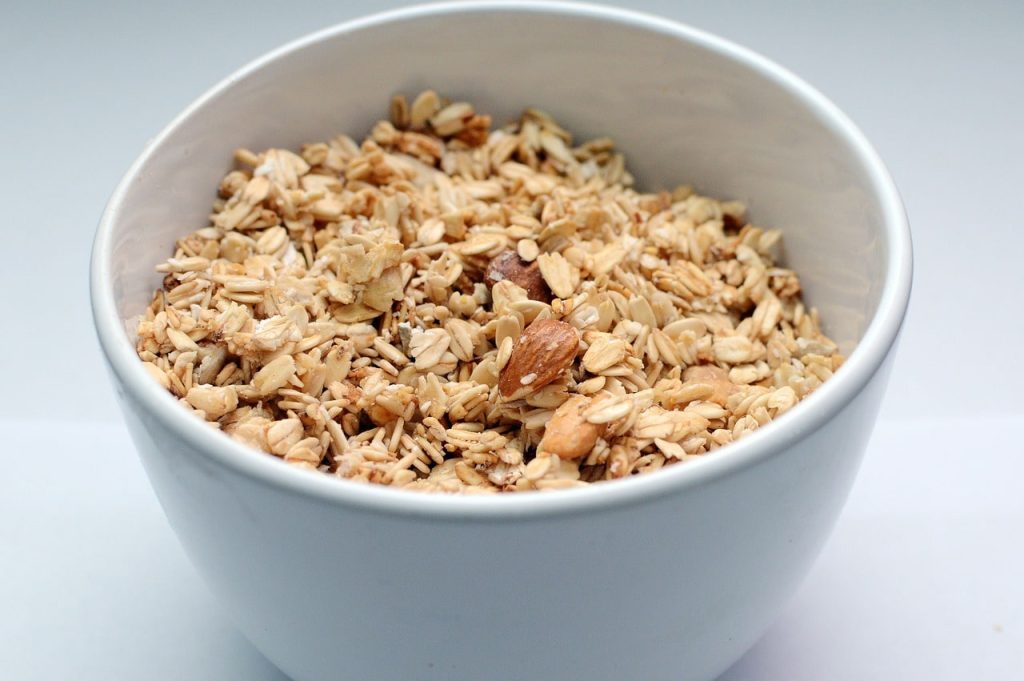
What To Eat To Lose Belly Fat In 1 Week
Top17 Best healthy foods to lose belly fat fast and feel great
How to Make Avocado Toast with Lemon A Creamy, Zesty Delight
Benefits of Eating Oats
Oats are a powerhouse of nutrients, offering vitamins, minerals, and antioxidants that contribute to overall health. Whether it’s heart health, digestion, or sustained energy, oats are a dietary staple for good reason.
Packed with Nutrients: What Makes Oats a Superfood
Oats are rich in beta-glucans, a type of soluble fiber that not only lowers cholesterol but also improves gut health. Additionally, they provide a healthy dose of protein, magnesium, and iron, earning their reputation as a superfood.
How Oats Help with Energy, Digestion, and Weight Control
Complex carbohydrates in oats provide steady energy, unlike quick-burning sugars. Their fiber content aids digestion, keeping you regular and helping you feel full for longer—a boon for those managing their weight.
The Role of Oats in Maintaining Heart Health
Oats are a heart-health hero. They help reduce LDL cholesterol, also known as “bad” cholesterol, while supporting healthy blood pressure levels. Eating oats regularly is a simple way to protect your heart.
Why Morning Might Be the Best Time to Eat Oat
Start Your Day Energized: Oats as a Power Breakfast
Mornings can be hectic, but a bowl of oats provides the fuel you need to tackle the day. Packed with fiber and slow-digesting carbs, oats give you a sustained energy boost to power through your morning tasks.
Keeping Blood Sugar Levels Steady All Morning
Oats have a low glycemic index, meaning they release glucose slowly into the bloodstream. This helps prevent energy crashes and keeps you feeling steady and focused until your next meal.
Pre-Workout Fuel: Why Morning Oats Boost Performance
If you exercise in the morning, oats are an ideal pre-workout meal. They provide the carbohydrates necessary for endurance and stamina, helping you perform at your best during physical activities.
Why Night Might Be the Best Time to Eat Oat
A Comforting and Relaxing Way to End Your Day
After a long day, there’s something soothing about a warm bowl of oats. Its creamy texture and subtle flavors make it the perfect comfort food to wind down.
How Oats Promote Better Sleep and Overnight Recovery
Oats contain melatonin, a hormone that helps regulate sleep. Paired with magnesium, another nutrient found in oats, they can promote relaxation and better overnight recovery.
Managing Hunger: Avoiding Late-Night Snacking with Oats
Late-night hunger can lead to unhealthy snacking. A small serving of oats can satisfy cravings without overloading your system with calories.
Comparing Morning and Night Oats
Does Your Body Process Oats Differently in the Morning vs. Night?
Metabolism is typically higher in the morning, making it easier for your body to process oats efficiently. However, the slower digestion at night may enhance their calming effects.
Choosing the Best Time Based on Your Lifestyle and Schedule
Your daily routine plays a big role in deciding the best time to eat oats. Active individuals may benefit more from morning oats, while those looking for relaxation might prefer them at night.
Morning vs. Night: Which Fits Your Health Goals Better?
Whether it’s weight loss, energy, or better sleep, your health goals will determine the best time for your oats. Morning oats suit productivity, while nighttime oats support rest and recovery.
Eating Oats for Specific Health Goals
When to Eat Oats for Weight Loss Success
Morning oats are excellent for curbing hunger and reducing calorie intake throughout the day.
The Best Time for Athletes to Eat Oats for Maximum Benefit
Athletes can benefit from oats as both a pre-workout and recovery meal, depending on their training schedules.
Eating Oats for Better Digestion: Timing Tips
Evening oats can work wonders for digestion, as their high fiber content helps regulate your system overnight.
Creative Ways to Enjoy Oats
Morning Oatmeal Recipes to Kickstart Your Day
Add fruits, nuts, or seeds for a nutrient-packed breakfast.
Delicious Nighttime Oats for a Relaxing Treat
Overnight oats made with almond milk, honey, and chia seeds are a delightful way to end the day.
Oats Beyond Breakfast: Easy Snacks and Smoothies
Granola bars and oat-based smoothies are perfect for on-the-go snacking.
Myths and Facts About Oats Timing
Is Eating Oats at Night Bad for You?
Contrary to myths, oats can be eaten at any time without negative effects.
Can You Overeat Oats? How Much Is Too Much?
Moderation is key. Overeating oats can lead to excess calorie intake.
Expert Tips on Choosing the Right Time
Listening to Your Body: Finding Your Perfect Oats Schedule
Your body knows best—experiment and observe how you feel after eating oats at different times.
Combining Oats with Other Foods for Better Results
Pair oats with healthy fats or proteins to enhance their nutritional value.
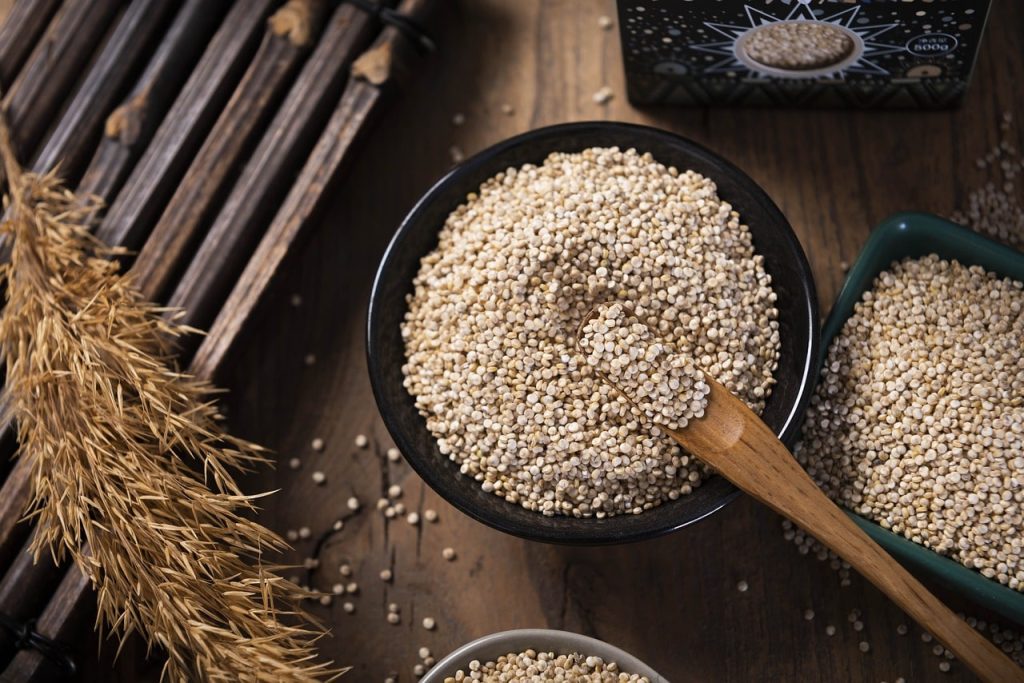
Is it good to eat oats at night for weight loss
When it comes to weight loss, every detail counts—from what you eat to when you eat it. Oats, often dubbed a superfood, are a staple for anyone looking to shed a few pounds. But is it good to eat oats at night for weight loss? Let’s explore how incorporating this nutritious grain into your evening routine could be the key to achieving your weight goals.
The Nutritional Benefits of Oats
High Fiber Content: Aiding Digestion and Satiety
Oats are a powerhouse of dietary fiber, particularly beta-glucan, which slows digestion and keeps you feeling full longer. This can help curb late-night hunger pangs, reducing the chances of unhealthy snacking.
Low-Calorie Density: A Smart Choice for Weight Management
Despite being incredibly filling, oats are relatively low in calories. This makes them an excellent choice for those aiming to create a calorie deficit without feeling deprived.
The Role of Complex Carbohydrates in Energy Regulation
Unlike simple carbs, the complex carbohydrates in oats release energy slowly. This steady supply of energy prevents blood sugar spikes, making oats a smart choice for sustained metabolic health.
Why Eating Oats at Night Can Support Weight Loss
Managing Late-Night Cravings
One of the biggest hurdles in weight loss is overcoming nighttime cravings. A small bowl of oats can satisfy your hunger without derailing your calorie goals, thanks to its high fiber content and satisfying texture.
Promoting Better Sleep for Optimal Metabolism
Quality sleep is crucial for effective weight management. Oats contain melatonin and magnesium, nutrients that help promote relaxation and improve sleep quality. Better sleep translates to a more efficient metabolism and reduced cortisol levels, which can otherwise trigger weight gain.
How Oats Help Stabilize Blood Sugar Overnight
Eating oats at night can stabilize blood sugar levels, preventing nighttime dips that might wake you up hungry. Stable blood sugar also reduces the likelihood of fat storage, making oats a beneficial evening meal.
Potential Downsides of Eating Oats at Night
Overeating and Portion Control
While oats are healthy, it’s easy to overindulge. Eating a large portion late at night can lead to excess calorie consumption, negating their weight loss benefits.
Choosing the Right Type of Oats for Evening Consumption
Not all oats are created equal. Instant oats, often laden with sugar, should be avoided at night. Opt for plain rolled or steel-cut oats to keep your meal nutrient-dense and free of unnecessary calories.
Tips for Enjoying Oats at Night for Weight Loss
Healthy Nighttime Oats Recipes
Create a soothing bowl of oats with almond milk, cinnamon, and a handful of berries for sweetness. For added protein, mix in Greek yogurt or a spoonful of nut butter.
Combining Oats with Protein and Healthy Fats
Pair oats with toppings like chia seeds, flaxseeds, or a dollop of almond butter. These additions increase satiety and ensure a well-rounded meal that supports weight loss.
How to Create a Sustainable Oats Routine
Consistency is key. Incorporate oats into your evening routine a few times a week. Balance your meals throughout the day to ensure your nighttime oats align with your overall calorie and macronutrient goals.
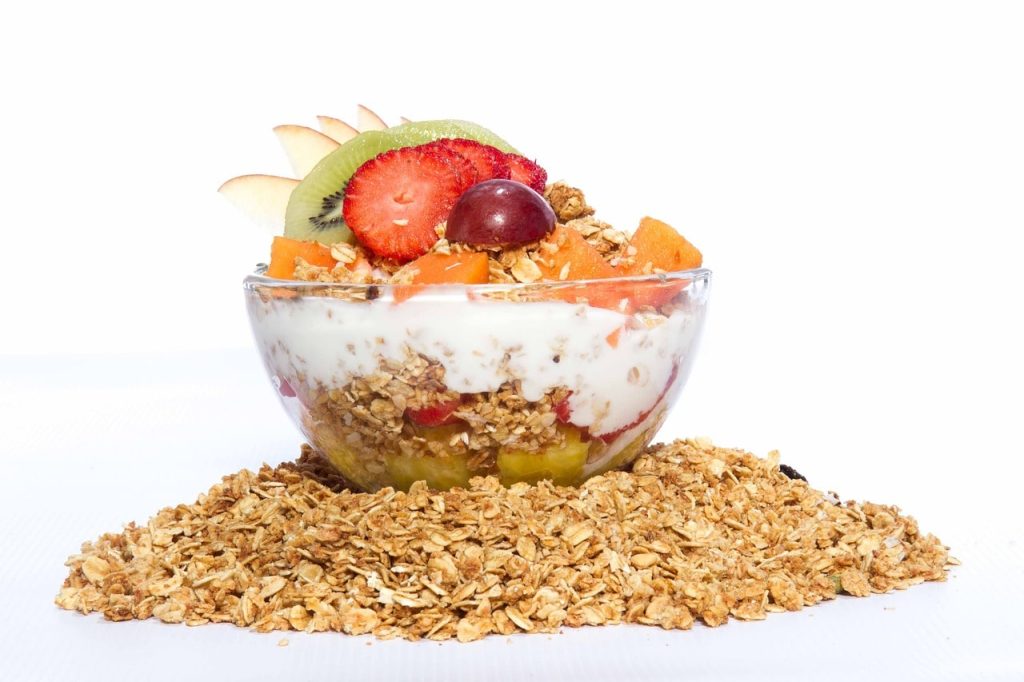
Advantages and disadvantages of eating oats at night
Oats are a beloved staple of healthy eating, and their versatility makes them suitable for meals at any time of the day. While traditionally enjoyed in the morning, oats have found their way into nighttime routines. For many, they are a comforting and nutritious end to the day. However, the timing of meals can significantly impact their benefits, and oats are no exception. Let’s explore the advantages and disadvantages of eating oats at night, so you can decide if they belong on your evening menu.
Advantages of Eating Oats at Night
A Natural Aid for Better Sleep
Oats are rich in melatonin and complex carbohydrates that help the body produce serotonin—a hormone that promotes relaxation. Eating a bowl of oats at night can create a soothing effect, preparing your body for restful sleep. This makes oats a natural choice for those who struggle with unwinding before bed.
Satisfying Late-Night Hunger Cravings
If late-night hunger strikes, it’s easy to reach for unhealthy snacks. Oats, being both filling and nutritious, provide a wholesome alternative. Their high fiber content helps keep you full without resorting to calorie-dense junk food, making them a great choice for health-conscious individuals.
Supporting Weight Management Goals
Consuming oats at night can help maintain a balanced calorie intake. Their slow-digesting carbohydrates keep you satisfied, reducing the temptation for midnight snacking. This can be particularly helpful for those trying to manage their weight without compromising on nutrition.
Gentle on Digestion: A Light Evening Option
Unlike heavy meals that can disturb your digestion, oats are easy on the stomach. They provide a light yet satisfying option for dinner or a late-night snack, ensuring your digestive system isn’t overburdened before bedtime.
Disadvantages of Eating Oats at Night
Overeating: A Risk of Excess Calories
While oats are nutritious, it’s easy to overeat them, especially when adding toppings like honey, nuts, or dried fruits. Consuming large portions late at night can inadvertently lead to calorie surplus, counteracting your health goals.
Impact on Digestion: Too Much of a Good Thing
Eating an overly large bowl of oats too close to bedtime might cause discomfort or bloating, disrupting sleep. Moderation is key to avoiding these potential downsides.
Choosing the Wrong Oats: Common Pitfalls
Not all oats are created equal. Instant or flavored oats often contain added sugars and preservatives that can spike blood sugar levels, making them less ideal for nighttime consumption. Choosing plain, minimally processed oats is essential for reaping their benefits.
Tips for Consuming Oats at Night Wisely
Portion Control: Finding the Right Balance
Stick to a portion that satisfies your hunger without overwhelming your system—about half a cup of dry oats is a good starting point.
Pairing Oats with Sleep-Friendly Ingredients
Enhance the sleep-promoting properties of oats by adding calming ingredients like bananas, almond butter, or a sprinkle of cinnamon. Avoid sugary toppings that can counteract the benefits.
The Role of Timing: When to Eat for Maximum Benefits
To avoid digestion-related discomfort, aim to eat oats an hour or two before bedtime. This allows your body ample time to process the meal, ensuring you can rest easily.
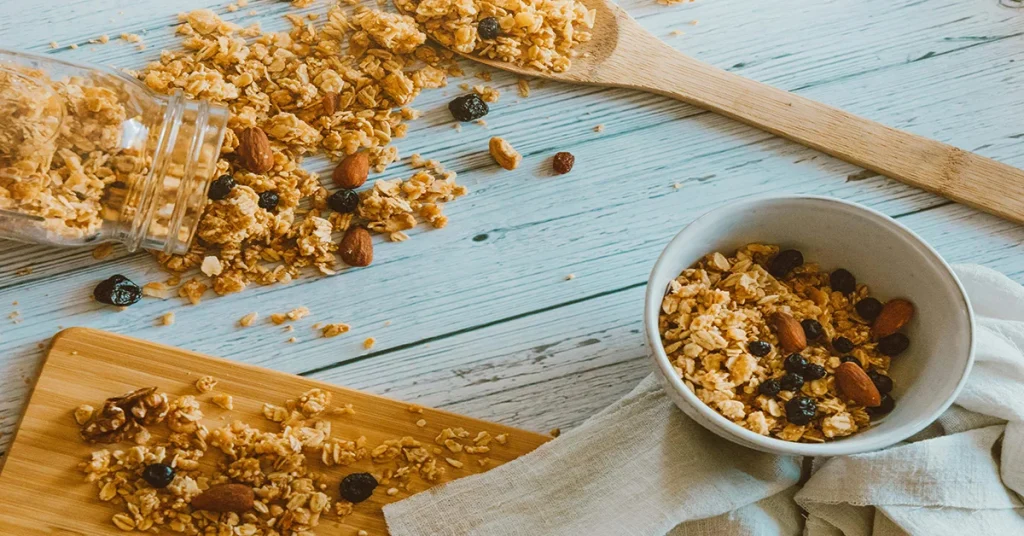
Conclusion
Eating oats at night can be a healthy and satisfying choice, but it’s not without its challenges. By understanding the advantages and disadvantages, you can make an informed decision that aligns with your health goals and lifestyle. With mindful portioning and the right additions, oats can become a comforting part of your nighttime routine, supporting both your nutritional needs and your sleep.
FAQs Best time to eat oats for health
Is it better to eat oats morning or night?
It depends on your goals. Morning oats provide energy and stabilize blood sugar, making them ideal for starting the day. Nighttime oats can promote relaxation and aid recovery.
Is it good to eat oats on an empty stomach?
Yes, oats are great on an empty stomach as they are gentle on digestion, provide sustained energy, and help maintain blood sugar levels.
Is it okay to eat oats every day?
Yes, eating oats daily is healthy. They are rich in nutrients, fiber, and antioxidants that support overall well-being.
Are there any side effects of oats?
Oats are generally safe, but excessive consumption may cause bloating or gas due to their fiber content. People with gluten sensitivity should opt for certified gluten-free oats.
How much oats per day?
1/2 to 1 cup of oats per day (dry) is ideal for most people, providing balanced nutrition without excess calories.
